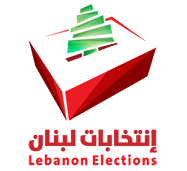 AMAL Movement, Future Movement, Free Patriotic Movement and Hezbollah, held their second meeting on Frida over the electoral law and progress was reported according to local media.
AMAL Movement, Future Movement, Free Patriotic Movement and Hezbollah, held their second meeting on Frida over the electoral law and progress was reported according to local media.
The meeting was attended by Finance Minister Ali Hassan Khalil of AMAL, Prime Minister Saad Hariri’s aide Nader Harir representing Future, FM Gebran Bassil representing FPM and MP Ali Fayyad representing Hezbollah.
“Differences are narrowing and there is an inclination to agree on a hybrid electoral law format that combines the proportional representation and winner-takes-all systems,” sources told LBCI television.
“Today we discussed the tiniest details that could lead to an agreement and the differences have narrowed,” other sources told MTV.
The 4 parties held their first meeting on Wednesday at the Baabda Palace.
“We have contacts with the other parties,” Khalil said after Wednesday’s meeting stressing that they are not plotting against any party
President Michel Aoun had warned earlier this week that he favors “vacuum” over a new extension of the parliament’s term or a return to the 1960 electoral law.
The political parties have intensified their efforts in recent days in a bid to agree on a new electoral law before the expiry of the deadlines.
They are discussing several formats of a so-called “hybrid” electoral law that combines the proportional representation and winner-takes-all systems, but have not so far agreed on any
Progressive Socialist Party leader MP Walid Jumblatt who rejection the proportional representation system said today that he is watching with caution the outcome of these meetings , al-Joumhouria daily reported Friday.
Jumblatt is carefully watching the path of the election law. He still insists on his position which rejects any law that hints at an abolition, exclusion or marginalization of the Druze community,” sources close to Jumblatt told the daily.
PSP, which is in favor of the winner-takes-all system, has recently warned that any law containing proportional representation would “marginalize” the minority Druze community.
One of the main obstacles is the Progressive Socialist Party’s rejection of proportional representation. The party has warned that any law containing proportional representation would “marginalize” the minority Druze community.
Aoun’s ally theIranian backed Hezbollah has repeatedly called for an electoral law fully based on proportional representation but other political parties, especially the Future Movement, have rejected the proposal and argued that the party’s controversial arsenal of arms would prevent serious competition in regions where the Iran-backed party has clout.In 2013 Lebanese Forces and The Future Movement backed by the PSP agreed on a hybrid electoral law which calls for 54% of the MPs to be elected under the majoritarian winner-takes-all system and 46 % under the proportional representation system. This draft law was rejected by the Hezbollah-led March 8 opposition.
Also in 2013 Future Movement leader PM Saad Hariri rejected the electoral law that is based on proportional representation because there will be competition in some regions, but there cannot be any competition in other regions, because of the presence of Hezbollah weapons in them.
Hariri was referring to the 2009 election in the areas dominated by Hezbollah. According to the reports that surfaced back then Hezbollah gunmen prevented their rivals from voting and the results of the election showed it. On the other hand in the March 14 dominated areas several Hezbollah backed candidates won the election that was based on winner-takes- all system . In a proportional representation system Hezbollah will be able to gain more seats in the March 14 dominated areas but will not lose any seats in its dominated areas as long as it is allowed to keep its arms and use them internally for political gain .
The country has not voted for a parliament since 2009, with the legislature instead twice extending its own mandate.
The 2009 polls were held under an amended version of the 1960 electoral law and the next elections are scheduled for May 2017.

Leave a Reply
You must be logged in to post a comment.